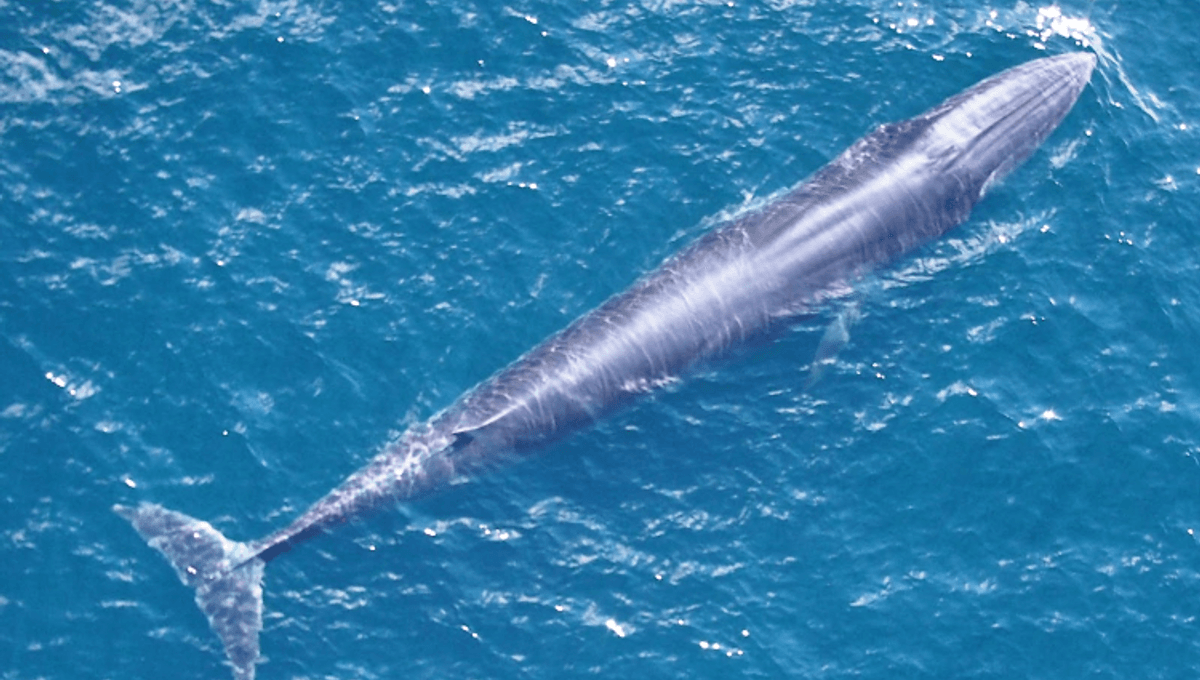
The Gulf of Mexico is home to a wealth of oil and gas rigs, fishing boats, shipping lanes – and one of the most endangered whale species in the world. Only 51 Rice’s whales remain and, according to experts and conservation groups, bringing them back from the brink of extinction means that human activities in the region will need to change. But are people willing to?
A species in danger
Rice’s whales are a species of baleen whale found solely in the Gulf of Mexico, thought to be the region’s only year-round baleen resident. They were not discovered until 1965 and even then, they were believed to be a subspecies of Bryde’s whale. It wasn’t until a whole host of the whales were killed in the aftermath of the Deepwater Horizon incident, and washed up on the shore, that researchers conducted genetic tests and discovered they were their own species.
It also became clear that the Rice’s whale was in danger. At present, it’s estimated that there are only 51 remaining, making them one of the most endangered whale species in the world. “Every animal counts at that point,” said Jane Davenport, a senior attorney at Defenders of Wildlife, a conservation nonprofit, speaking to NPR. “Every one you kill is another nail in the coffin.”
However, the species was only listed in the Endangered Species Act in 2019, and scientists and conservation groups have argued that not enough is being done to protect the whales. While it has proposed a designated “critical habitat” for the species, the National Oceanic and Atmospheric Administration (NOAA) has yet to solidify it, and even then the area won’t represent a marine preserve.
Conservation versus commerce
There are numerous recognized threats to Rice’s whales; the Deepwater Horizon incident, for example, demonstrated that they can be affected by oil spills, which continue in the Gulf to this day. Another of the most significant threats is ships, through means of vessel strikes and noise disturbances.
Some conservation groups have taken to petitioning NOAA to establish speed limits for large ships traveling through the whale’s habitat, in an effort to push the agency into action and minimize future vessel strikes. This didn’t go down too well with the energy and marine industries and both House and Senate bills were proposed that would block NOAA from taking action, arguing that it could affect commerce in the region. In the end, the agency rejected the petition.
Although little is known about Rice’s whales – they’re notoriously shy – it’s thought that hearing is also critical to their activities, such as communicating with each other and sourcing food. This could be disturbed by human activity in the Gulf, which ecologist Aaron Rice described as a “constant blanket of human noise.”
One of the main noisemakers in this region is air guns, which are used in seismic surveys to locate gas and oil fields. Whilst quieter alternatives exist, switching costs money, and without steadfast rules in place, companies are under no obligation to do so. “If the regulations aren’t there, they’re not going to do it,” said Robin Ellis, a vice president of sales at Sercel, a company selling both types of air guns. Oil and gas companies have also argued that these things take time and that new technologies are not yet efficient enough to make an effective alternative.
What happens now?
Whilst the battle to protect the Rice’s whale rages on, the species remains endangered. Some scientists aren’t convinced we’ll be able to save it. “I’m not confident that in 50 years they’re going to be around,” said Jeremy Kiszka, a Florida International University marine biologist, speaking to The Washington Post. “Honestly, I wouldn’t bet my life on it.”
Meanwhile, NOAA’s proposal to designate a critical habitat for Rice’s whales remains in progress, after a public hearing took place in September. Only time will tell if the proposal goes through and if so, whether it will have an impact in bringing the Rice’s whale back from the brink of extinction.
[H/T: NPR]
Source Link: Endangered Rice’s Whale On Brink Of Extinction, But What Is Being Done?